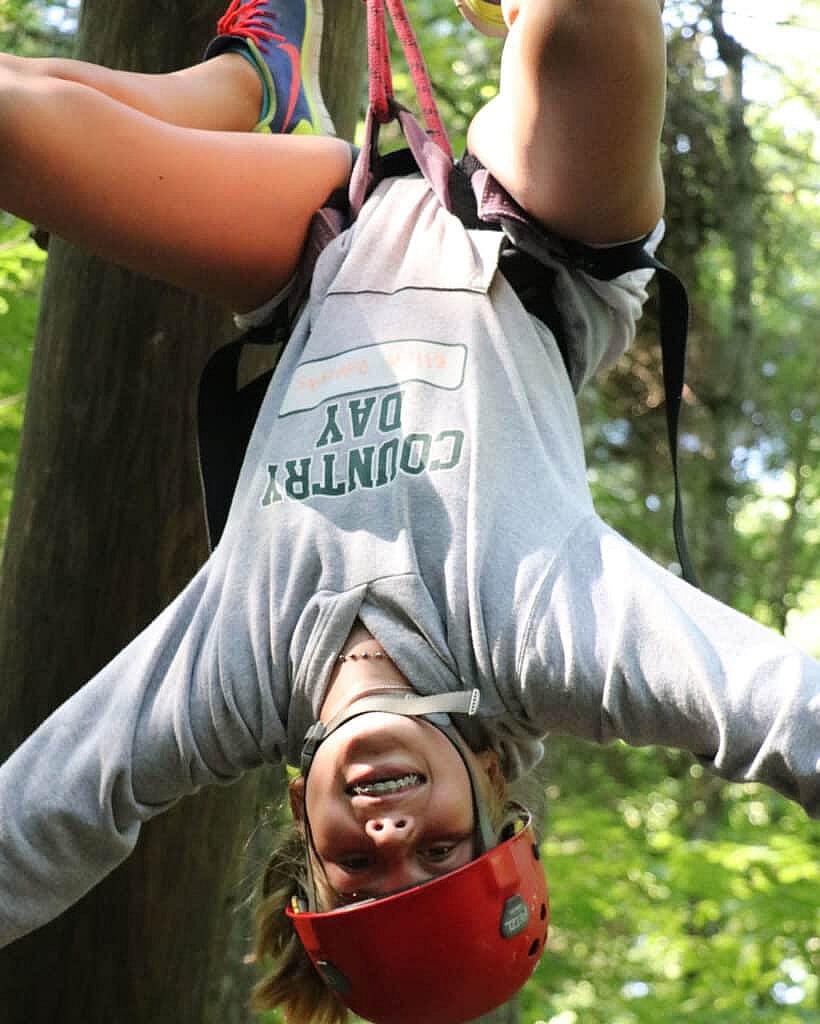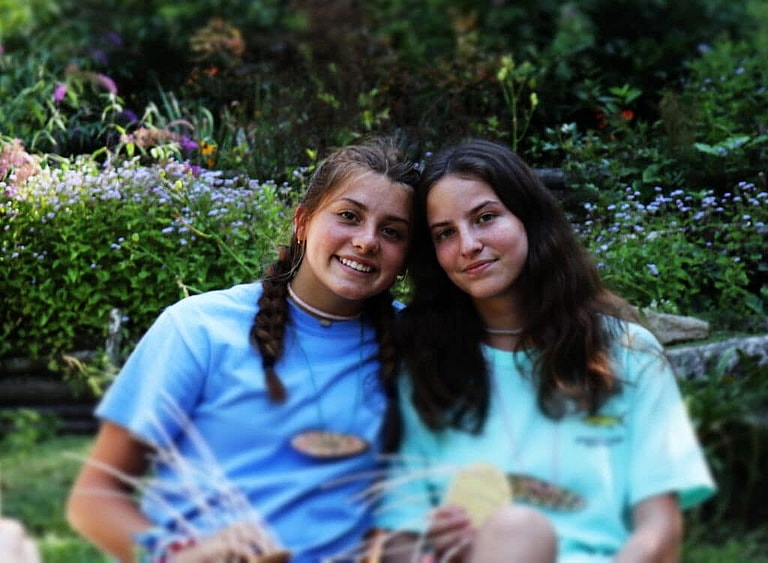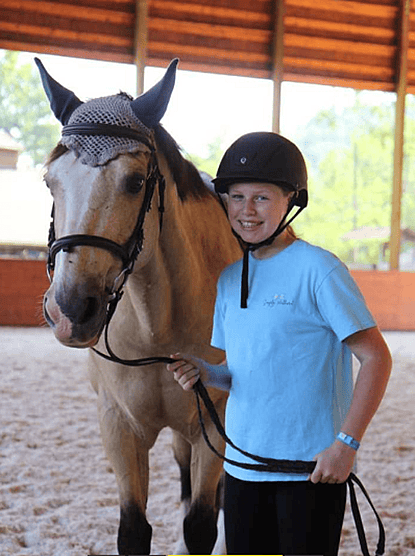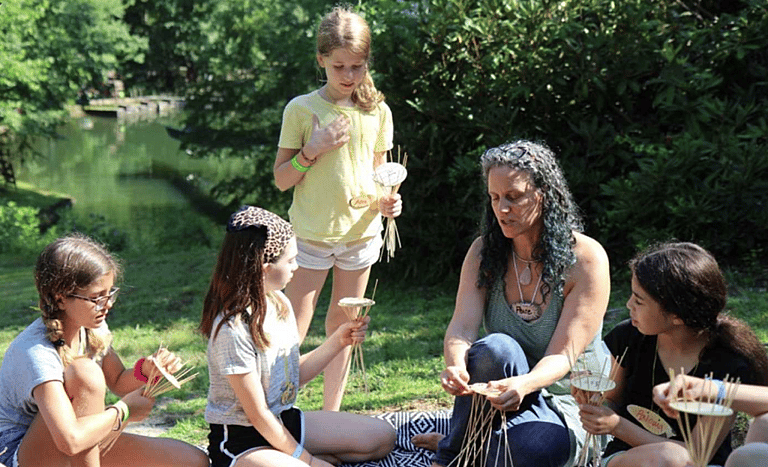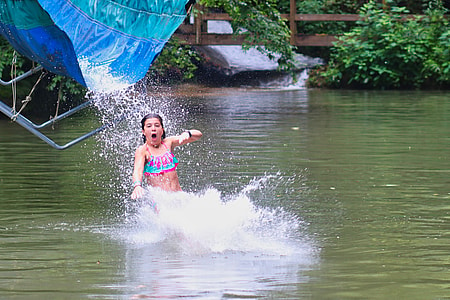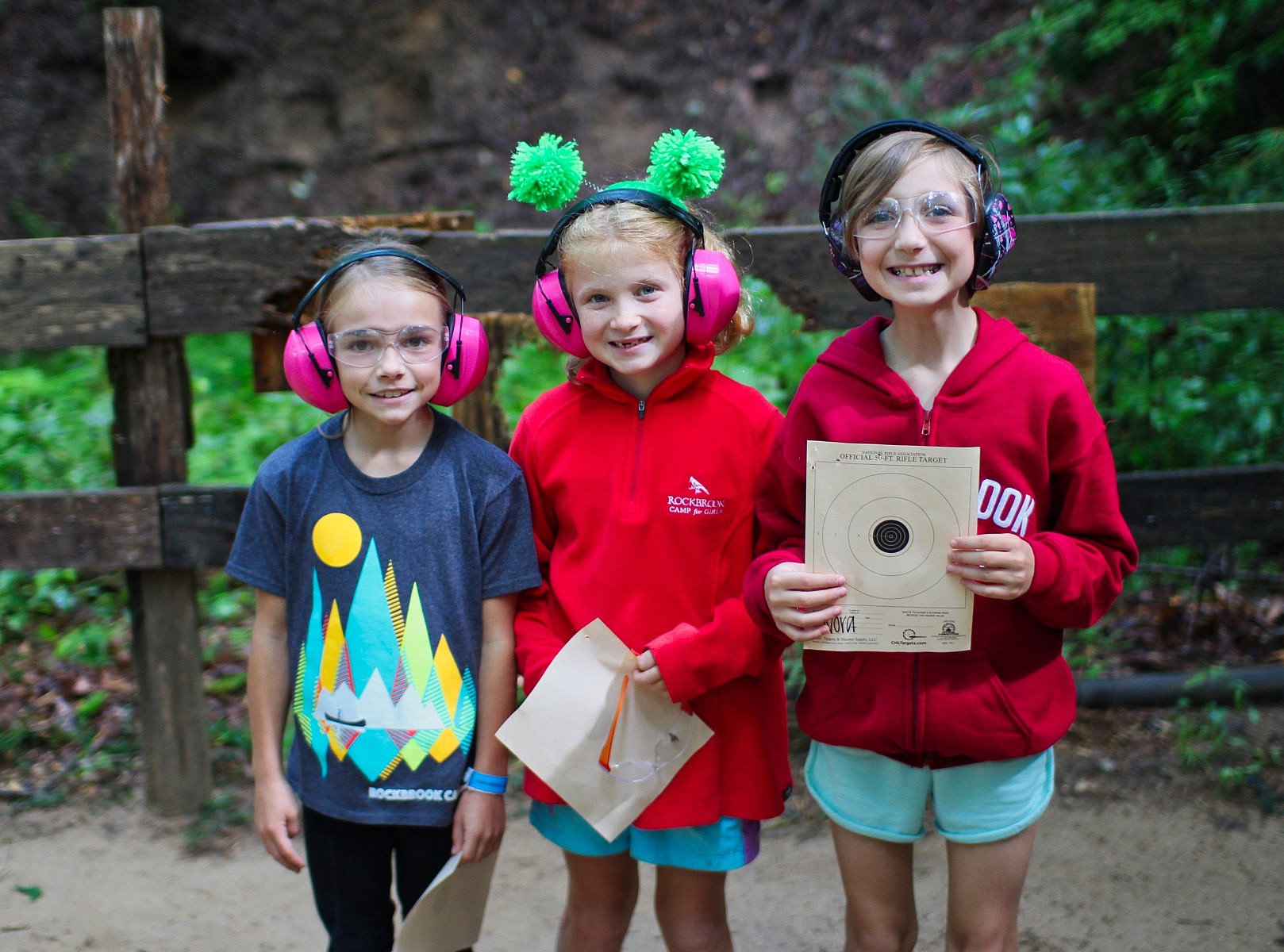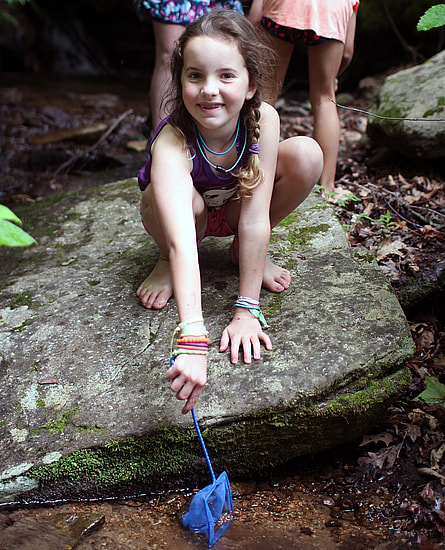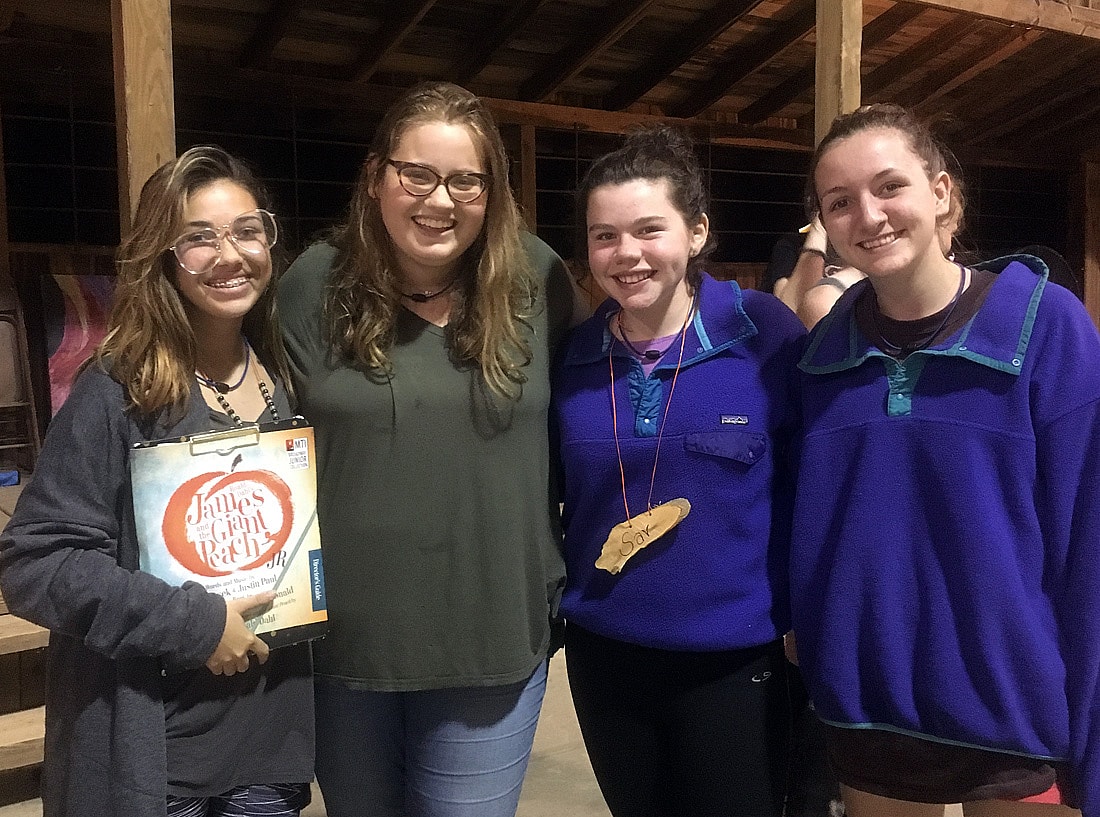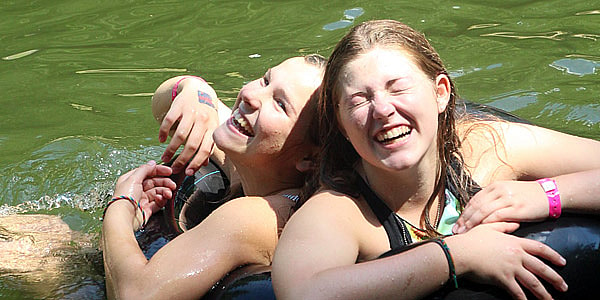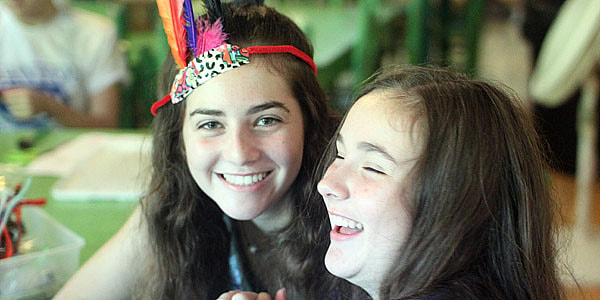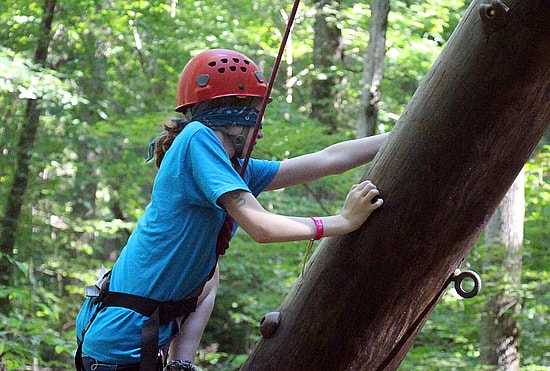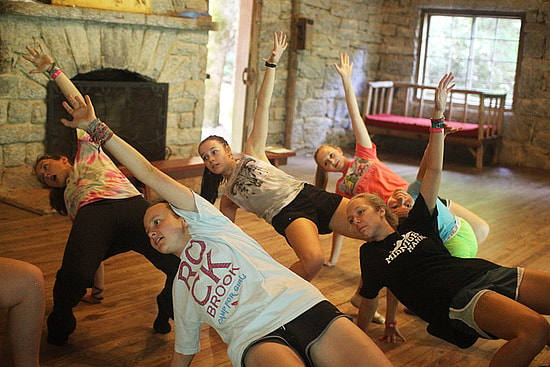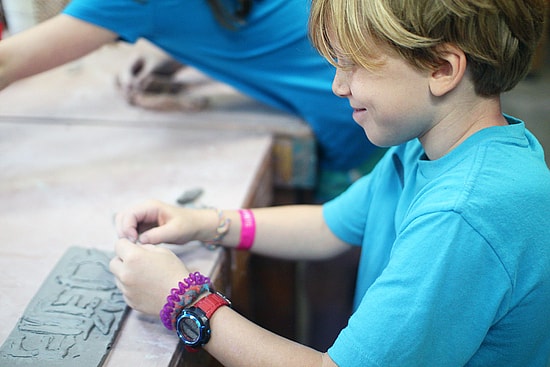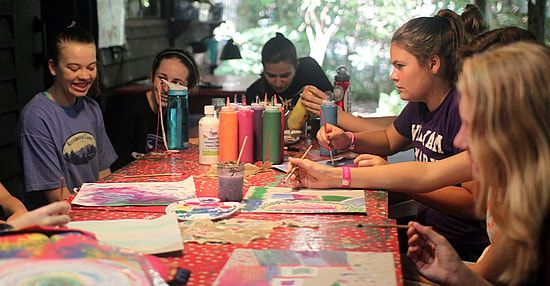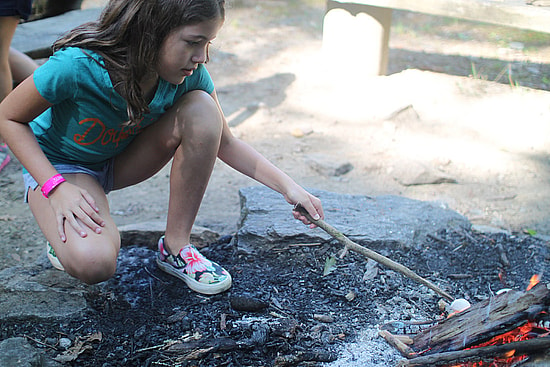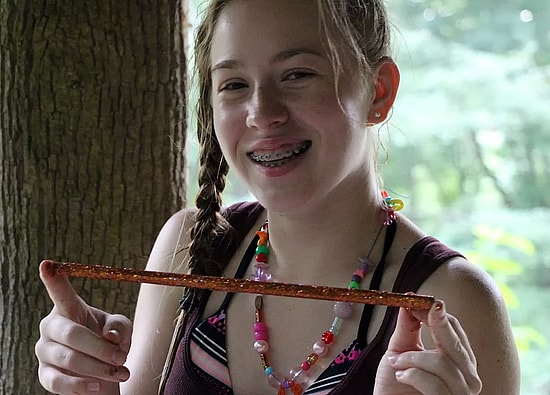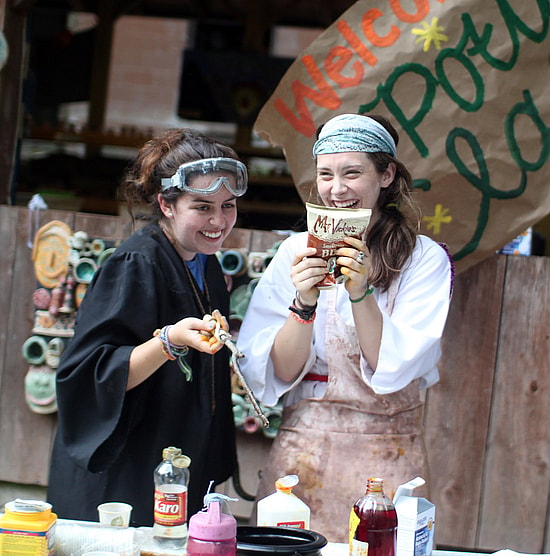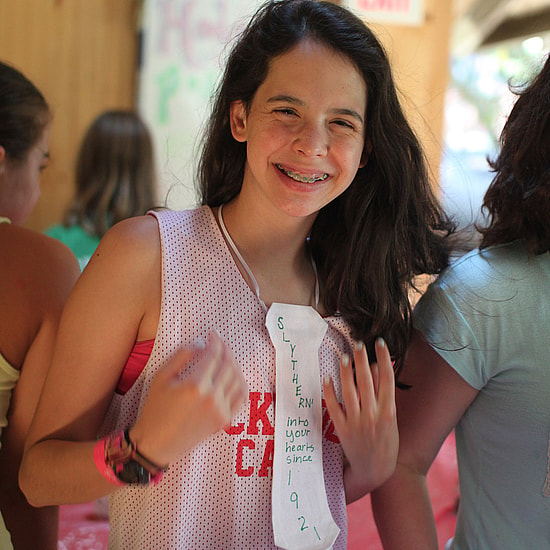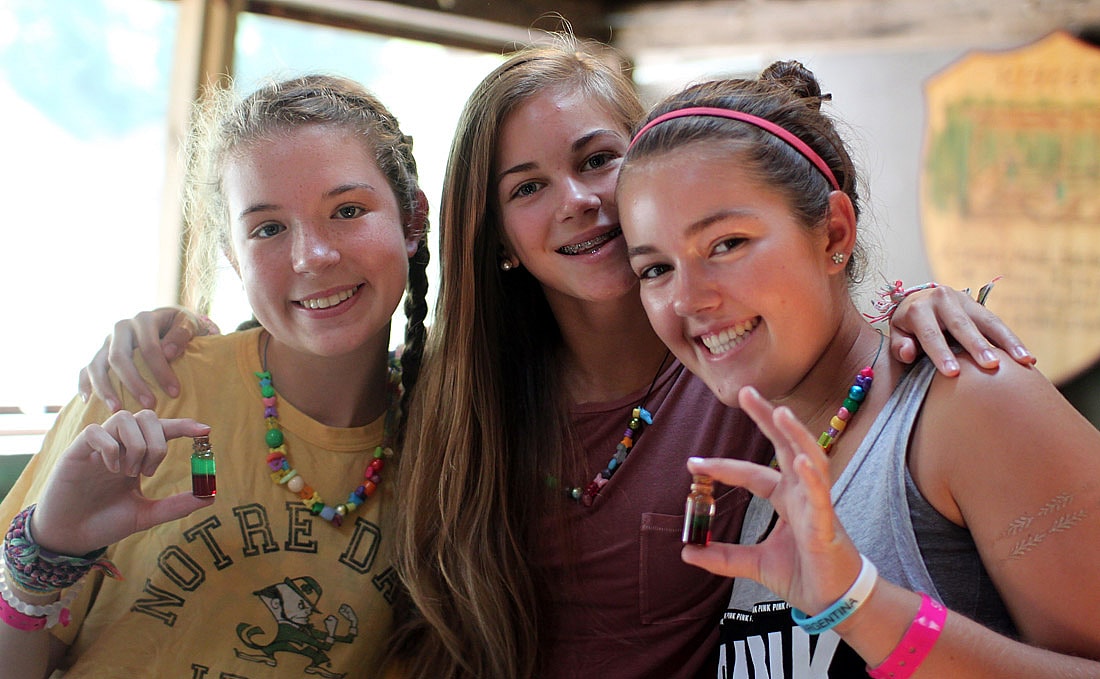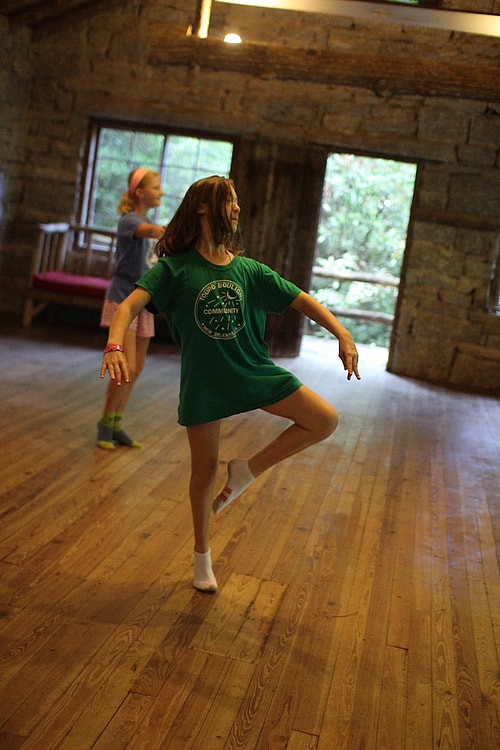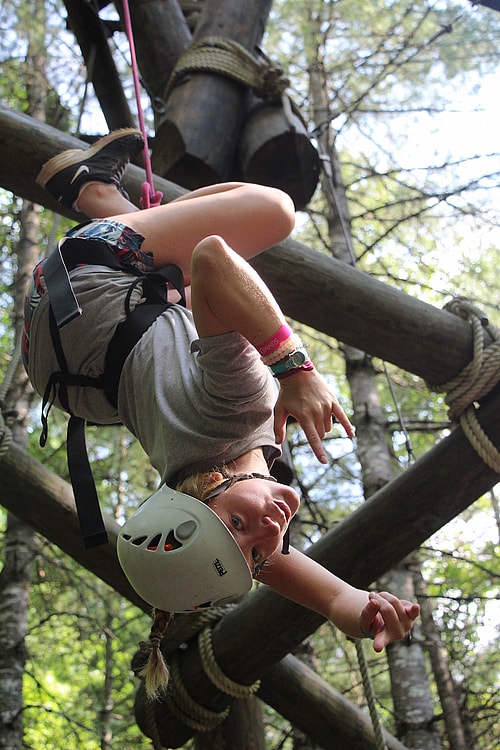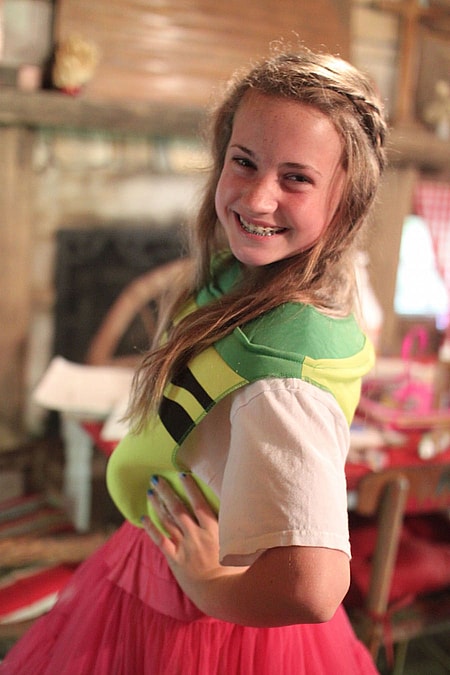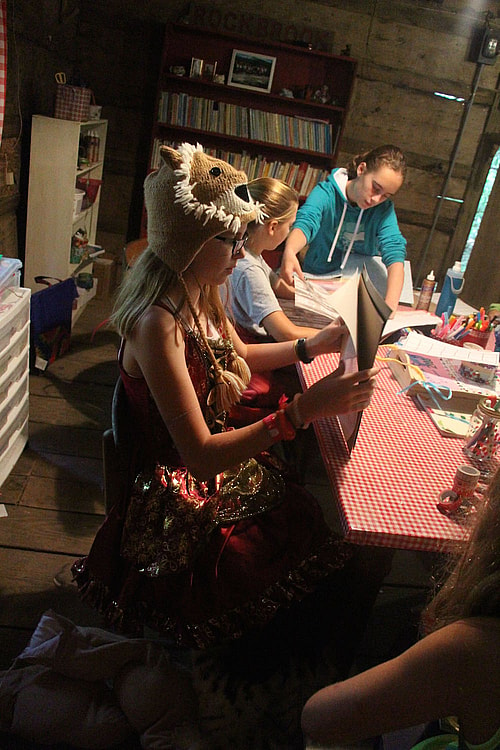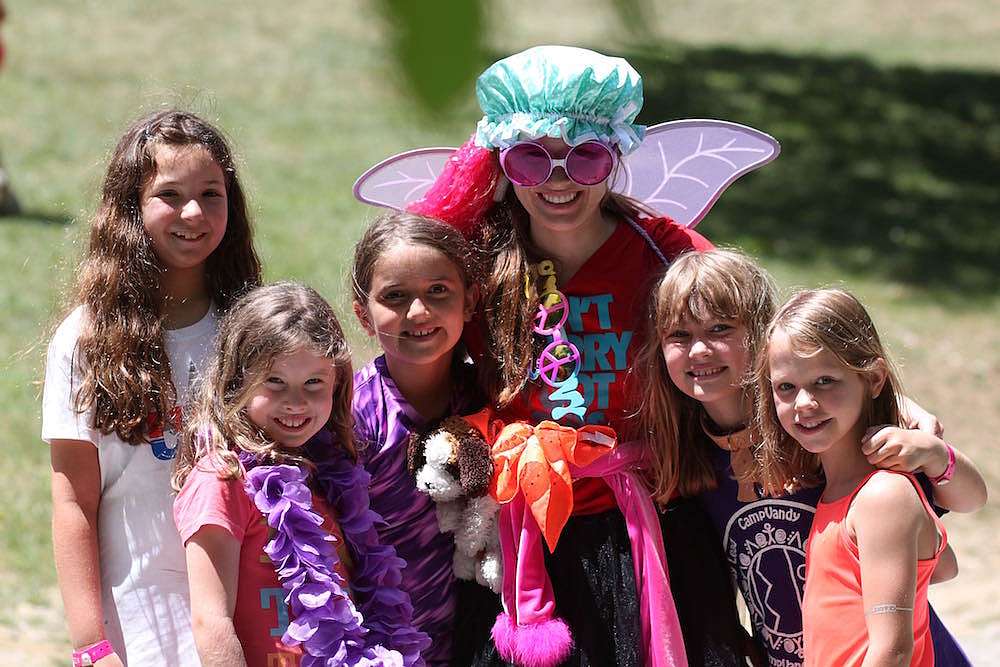
Now that we are into the second week of 3rd session, the CITs and Hi-Ups have had some time to get used to their new roles at camp. As part of the Leadership Ladder, these girls are transitioning from campers to counselors. Part of this transition is extra training throughout the session. This training comes in the form of hands-on experience helping counselors in activities, setting for and cleaning up meals, and spending time with campers. In addition, they participate in training periods led by our Directors and Leadership team on topics such as cabin logistics, learning Rockbrook history, and and behavior management.
Recently, I got the chance to talk with both Hi-Ups and CITs about the activity philosophy at Rockbrook. While walking around camp observing the various activities, we discussed why we do activity sign ups and activities in our particular way. Hi-Ups and CITs all had thoughtful answers to any question posed to them. They took the time to reflect on their own experience as campers, and then start to think about activities at Rockbrook from a counselor perspective. Their maturity, insight, and understanding of our philosophy was impressive!

First, we discussed the concept of “Challenge by Choice.” During the sign up process, campers can challenge themselves or be encouraged by their counselors to try a new activity. Sometimes this is a nerve-wracking moment for campers, who may think: “none of my cabin mates signed up for dance,” “I’ve never been a good swimmer,” or “what if I’m not good at embroidery?” We hope that through these moments campers can learn to be independent and be willing to choose their own adventures. During activities, the challenge is more obvious in some than in others. Increasing your accuracy in archery, reaching the top of the alpine tower, or perfecting your serve in tennis are clear goals campers can strive towards. The craft activities can also be challenging, however, especially if you’ve never thrown on a pottery wheel or used a large floor loom before. In these activities the challenge is more subtle, and can be seen more through the process rather than the finished piece. The counselors facilitate the challenges in appropriate ways so that each camper has her own experience. Seeing other campers trying new things and the constant environment of encouragement and support allows girls to branch out of their comfort zones.



Second, we discussed the relationships that are able to flourish at camp. Taking activities is just one of the ways that the social and emotional needs of campers are supported at camp. The Hi-Ups and CITs all commented on the benefits of signing up alone for activities in addition to signing up with a group of your cabin mates. On one hand, campers get to make new friends amongst their age group. On the other, they get to become closer with the other girls in their cabin. One Hi-Up mentioned how she would be too nervous to sign up for tennis by herself, but if she signed up with a friend, she would be more willing to take that risk and try something new. Either way, campers get to make new friends through their shared triumphs, failures, and laughter in activities. Plus, they are able to meet counselors from other lines, who may inspire them to sign up for an activity they otherwise wouldn’t take.
Through activities, campers and counselors of different age groups get to interact in a low-pressure, high-encouragement environment. Pottery, yoga, jewelry making, play rehearsal, horseback riding—these are just the channel through which our community is created. This safe, supportive space for genuine relationship-building is what makes camp unique, and is why campers come back year after year to see the friends and counselors who have impacted them along the way.
—Jenna Lilly



